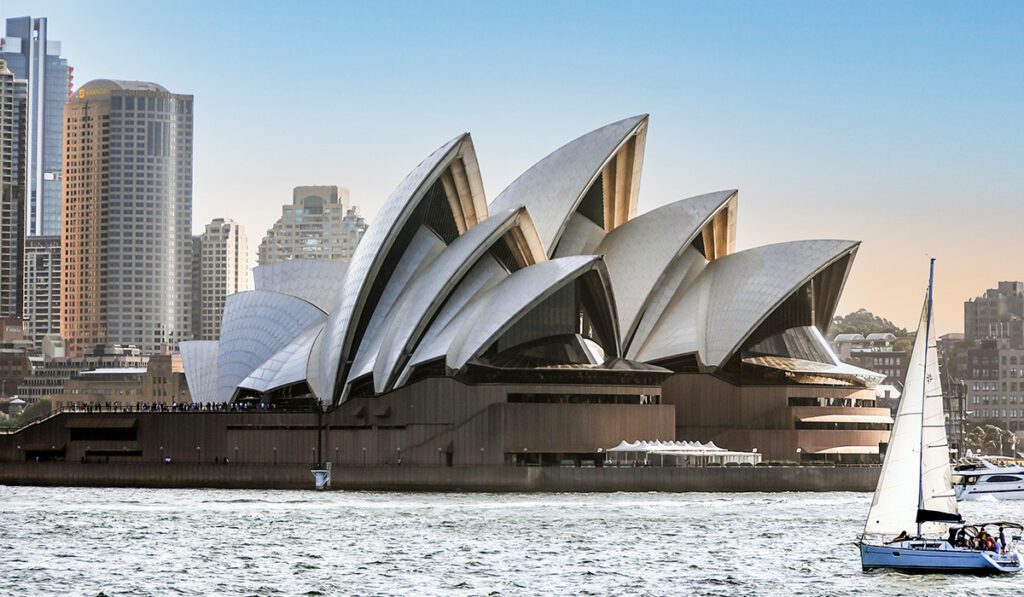

In today’s global market, understanding the nuances of different countries is essential for strategic decision-making. This article offers a comparative analysis of doing business in Singapore and Australia, focusing on factors such as economic stability, regulatory environment, infrastructure, labor market, and market potential. By examining key metrics like ease of doing business, taxation policies, innovation ecosystem, and access to talent, businesses can gain insights to thrive in these dynamic landscapes. Let’s explore the strategic insights shaping business decisions in Singapore and Australia.
Economic Overview
Singapore and Australia, with shared legal heritage, stand as premier business hubs globally. Both offer pro-business policies, political stability, and robust defense systems, with Singapore ranking 5th among Australia’s trading partners.
Australia’s vastness and cultural diversity provide numerous business advantages, yet its geographical isolation and complex legal and tax systems pose challenges. Meanwhile, Singapore’s innovation-driven economy, reliant on human capital, excels with a pro-business environment and favorable tax regime, attracting global investors, entrepreneurs, and skilled talent to propel its economic success.
Business Environment
Singapore came in 2nd in the World Bank’s ease of doing business ranking, outperforming in various regulatory areas, while Australia holds the 14th position. Key differences include Singapore ranking higher in protecting minority investors (3rd vs. 57th), enforcing contracts (1st vs. 6th), and starting a business (4th vs. 7th).
According to the 2021 World Economic Forum, Singapore remains the most competitive country globally, with Australia ranked 15th. Singapore also excels in border clearance procedures, known for their efficiency, predictability, and transparency. Additionally, Singapore’s intellectual property protection laws are comparable to Australia’s, despite slightly lower filing and renewal fees.

Skilled Workforce
Australia, with a population of 25.9 million, has a workforce much larger than Singapore’s. Despite both nations having multicultural and multilingual labor forces, Singapore boasts a higher percentage of highly educated workers, with 47% holding a degree or diploma compared to 43% in Australia.
Both countries have regulations governing working hours, with Australian employees limited to 38 hours per week under federal law, while in Singapore, the maximum daily working hours are capped at 12 hours. Additionally, Australia sets a federal minimum wage of AUD 17.70 per hour, while Singapore does not have a mandated minimum salary for employees.
Business Language
In Australia, English is predominantly spoken, with 1.3 million people speaking a European language and 2.1 million speaking an Asian language. Similarly, in Singapore, English serves as the primary language for both business and domestic communication. Singaporeans also typically receive education in additional languages such as Malay, Mandarin, or Tamil, aligning with their ethnic backgrounds.
Ease of Business Setup
Business registration in Singapore and Australia are straightforward. Australia typically requires three steps for setup, while Singapore accomplishes it in just two. The cost of business registration ranges from $422 to $512 in Australia and starts at S$315 in Singapore.
Incorporation timelines range from one to three days in both countries, with at least one director and shareholder needed, and the same individual may fulfill both roles depending on their residency status. Additionally, various registration options cater to different business needs and structures in both nations.
Taxation System
Singapore offers a significantly more favorable tax system compared to Australia, with lower corporate and personal income tax rates, tax exemptions, and incentives for businesses, along with sector-specific support initiatives. Singapore’s tax structure includes a 0% tax rate on dividend income, capital gains, and inheritance, along with schemes like the Start-up Tax Exemption program.
The country’s single-tier tax system and extensive network of bilateral double-taxation agreements further enhance its appeal to businesses. Conversely, Australia’s tax system is more complex and higher rated, posing challenges for foreign investors with its intricate tax structures and potential withholding taxes on dividend income and capital gains for non-residents.
Government Aid
Both Australia and Singapore are esteemed locations for corporate expansion due to their governments’ efforts in fostering business-friendly environments, offering tax incentives, and providing government aid programs. Australia provides various strategies, such as direct grants, tax perks, and the research and development tax incentive, to encourage economic growth, with over 700 programs available to support regional businesses.
Singapore, with its focus on a technology-driven economy, offers national sector-specific business support initiatives available to all Singaporean-incorporated businesses and some to foreign entities. While Australia emphasizes regional development and sector-specific growth, Singapore’s approach centers on leveraging technology to drive economic advancement, given its small population and limited natural resources.
Business Visa Requirements
Both Singapore and Australia offer visa options for foreign workers seeking to start businesses. In Singapore, professionals can apply for an Employment Pass, while entrepreneurs can opt for an EntrePass, benefiting from favorable immigration policies with no restrictions on foreign ownership. Australia provides Skilled Independent Work Visas and Entrepreneur Visas, albeit not as business friendly as Singapore. However, it still offers opportunities for foreign business owners, including those establishing new ventures in Australia.

Sturdy IP Protection
Both Singapore and Australia maintain strong intellectual property protection systems. Singapore boasts an efficient legal system with a specialized IP Court and government support through programs like the Productivity and Innovation Credit, offering tax benefits for IP-related costs.
Similarly, Australia upholds robust IP protection governed by federal and common law, ensuring a secure environment for businesses to operate and innovate, although it lacks a specialized IP court like Singapore.
A Snapshot Comparison | Singapore vs Australia
Explore the business landscapes of Singapore and Australia with this comparative summary. Gain insights into key factors, from population and GDP to tax structures, workforce, and quality of life. This table highlights essential aspects, helping you make informed decisions on where to establish and grow your business.
| Aspect | Singapore | Australia |
| Population | 5.7 million | 25.9 million |
| Territory | 724.2 sq km | 7.69 million sq km |
| GDP | $340 billion | $1.3 trillion |
| Unemployment Rate | 2.4% | 4% |
| FDI Inflow | $87.4 billion | $19.6 billion |
| GDP per Capita | $59,797 | $51,692 |
| Business Environment (World Bank Rank) | 2 | 14 |
| Protecting Minority Investors (Rank) | 3 | 57 |
| Enforcing Contracts (Rank) | 1 | 6 |
| Starting a Business (Rank) | 4 | 7 |
| Corporate Income Tax | 17% | 30% |
| Personal Income Tax | 0%-24% (Residents) | 0%-45% (Residents), 32.5%-45% (Non-Residents) |
| GST | 9% | 10% |
| Capital Gains Tax | 0% | 30-45% |
| Dividend Tax | 0% | 30% |
| Interest Tax | 15% | 10% |
| Royalty Tax | 10% | 30% |
| Government Assistance | Various tax incentives, aid programs | Grants, tax incentives, R&D tax incentive, regional support programs |
| Workforce Education | 47% with degree or diploma | 43% with degree or diploma |
| Maximum Weekly Working Hours | 12 hours a day | 38 hours per week |
| Minimum Wage | No minimum set | AUD 17.70 per hour |
| Business Language | English (Primary), various ethnic languages | English (Majority), European and Asian languages |
| Business Incorporation Categories | Private limited companies, subsidiaries, representative offices, sole proprietorships | Subsidiary companies, registered foreign companies |
| Setup Steps | 2 steps | 3 steps |
| Filing Requirements | Annual financial reports, filing of annual return and tax return | Annual financial reports, audited reports, PAYG tax collection system |
| Immigration Requirements | Employment Permit, EntrePass | Skilled visa, subclass 457 working visa |
| Infrastructure | Strong digital connection, well-connected to global markets | Vast territory, potential logistics challenges |
| Intellectual Property Protection | Strong IP protection laws, government support programs | Federal and common law protection, international agreements |
| Quality of Life | High quality of life with safe cities | Greater quality of life with safe cities |
Where Premia TNC Comes Into the Picture
Whether you represent an overseas company seeking to commence operations or an individual aiming to establish a business entity in Singapore, our comprehensive range of company formation services is designed to streamline the intricate process. From incorporation procedures to facilitating the selection of a local director and beyond, we offer tailored assistance to meet your specific requirements and ensure a smooth transition into the Singaporean business landscape.
FAQs for Doing Business in Singapore vs Australia
1. What are the tax advantages of doing business in Singapore compared to Australia?
Singapore offers a corporate tax rate of 17%, along with numerous tax incentives and double tax avoidance agreements, making it more advantageous than Australia's 30% corporate tax rate.
2. How does the ease of doing business in Singapore compare to Australia?
Singapore consistently ranks among the top for ease of doing business, with efficient regulations, a transparent legal system, and a strategic location in Southeast Asia, whereas Australia may present more bureaucratic hurdles.
3. What about the infrastructure and innovation ecosystem in Singapore vs Australia?
Singapore boasts world-class infrastructure, a thriving innovation ecosystem, and government support for research and development, making it a superior choice for tech-driven businesses compared to Australia's infrastructure and innovation landscape.





















